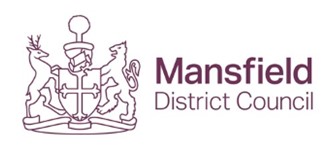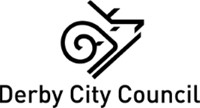Serco, a D2N2 partner who delivers support to SMEs via the European Social Fund, has announced that it recently supported over 120 employees at the Foston Muller site to retrain after they were made redundant.
In June 2019, Muller (Milk & Ingredients) announced the closure of its Foston, Derbyshire site which manufactured and distributed milk to supermarkets.
50 of the 210 full-time employees transferred to other Muller sites whilst The Department for Work & Pensions, directed Muller to Serco who deliver the Skills Support for the Workforce/Redundancy programme (SSR) to 125 other employees.
Skills Support for Redundancy (SSR) is funded by the European Social Fund via D2N2 and is designed to support individuals affected by redundancy.
SSR provides free training courses for employees facing redundancy or to those that are redundant to help them gain new skills, rebuild their careers, and even start their own business.
Siamo Training
Siamo training is part of Serco’s network of expert organisations chosen to deliver the programme in the D2N2 area, were chosen to support Muller under the Skills Support for Redundancy programme.
The key focus of the training was to support all staff in employability skills (many of whom have been at the site for over 10 years), as well as reaffirm the skillsets employees already possess by devising bespoke training programmes that recognise this.
In addition, staff were offered the opportunity to complete an NVQ in Business Management due to many having autonomy within their role with responsibility for teams.
Production Manager, Ian Preston, remarked on the training delivered: “Initially, we had no idea how effective this provision was going to be in supporting our business. Siamo Training spent time with our management team, discussing what we felt would be of benefit and from this, they went away and created bespoke support which was outstanding.”
“Training undoubtedly kept our workforce motivated throughout this challenging time, especially with the Siamo Training team being so engaging and helpful. It has also pushed several staff to grow their knowledge and has had a positive impact on finding new jobs and careers.”
The supported members of staff were offered a range of training programmes including NVQ level 1 in employability, NVQ level 2 in Manufacturing skills, and NVQs levels 3 and 4 in Business Management.
The training was completed at on-site over a 12-week period with a mixture of shop floor observation and 1-to-1 group classroom-based sessions.
As a result of the SSR, Staff gained certifications in a range of training topics, including; employability, manufacturing skills and business management.
Due to the challenging situation, Muller and Siamo Training looked to create training programmes that educated and armed staff in the current marketplace and how they were to adapt.
This, coupled with competency-based learning, moved onto honing and growing skillsets which ensured not only increased participant engagement but also a passionate learner.
Ian Preston concludes: “We didn’t know how to help our staff and at a time that morale in the business was becoming very challenging, the training supplied by Siamo Training allowed workers to become more engaged as they discussed their role and their importance within the business. Adding to this, the new learning [SSW] supplied was a fantastic inclusion and made for an easier last few weeks.”
“The work completed by Siamo Training has been raised to a high level in the business and appreciation has cascaded down. We are now in communications to see how we can be further supported in other training areas including Apprenticeships.”
D2N2
Projects such as SSR are funded via D2N2 in line with the organisation’s people & skills strategy, designed to help remove the gap between the skills our current workforce possesses and those that employers desire.
Research conducted by the Centre for Cities into the impact of automation shows a shift in roles over time with an added emphasis now being placed upon analytical and interpersonal skills over traditional physical or manual skillsets.
Work to remove this gap is funded by the European Social Fund which invests in people, with a focus on improving employment and education opportunities across the European Union.
It also aims to improve the situation of the most vulnerable people at risk of poverty.





























